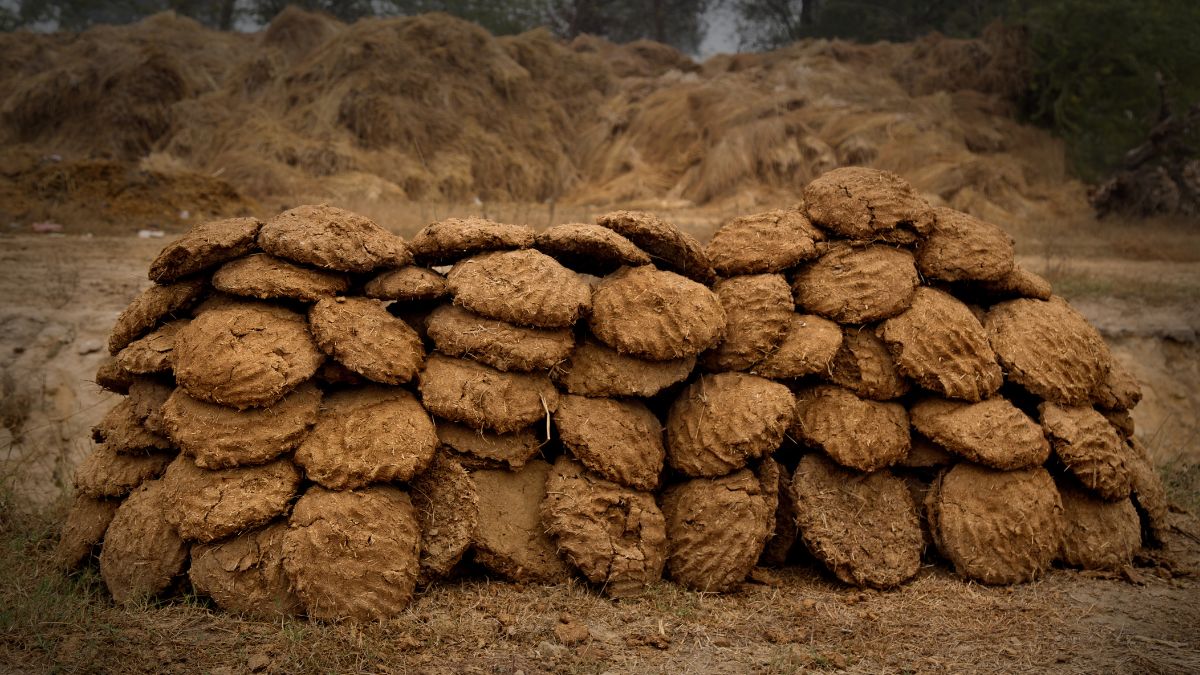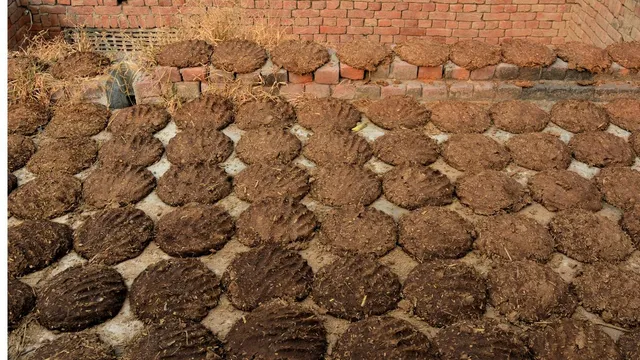- By Iram Hussain
- Wed, 16 Apr 2025 03:16 PM (IST)
- Source:JND
Cow Dung On Walls: The rustic charm of rural India has long been characterised by the distinctive sight of cow dung plastered on the walls of ancestral homes. This age-old practice, often viewed as outdated has been passed down through generations with many wondering about its significance. However, beneath its unappealing appearance lies a number of benefits. One such tradition is the use of cow dung in homes, a practice deeply rooted in rural India. For centuries, cow dung has been used to plaster floors and walls, providing a sustainable and inexpensive material that regulates indoor temperatures while keeping homes cool in summers and warm in winters.
A recent viral video featuring Dr. Pratyush Vatsala, Principal of Laxmibai College, applying cow dung to a classroom wall has sparked renewed interest in this traditional practice. By adopting this eco-friendly approach, Dr. Vatsala highlights the potential of revisiting ancient wisdom to create more sustainable living spaces. Here is all you need to know about the astonishing benefits of smearing cow dung or gobar on walls.
Benefits of Cow Dung
Repel Insects
Cow dung has been used for centuries in rural areas to repel insects like scorpions and centipedes. Its strong odour and properties deter these pests while keeping homes insect-free. The natural repellent properties of cow dung make it an effective and eco-friendly solution for keeping unwanted critters at bay.
Prevent Dust
In rural areas, unpaved floors were prone to dust, posing health risks. Mixing cow dung with water and applying it to floors creates a smooth, hard surface as it reduces dust and improves indoor air quality. This traditional practice made homes cleaner and more comfortable.

Benefits of applying cow dung on walls (Image Credits: Canva)
Cultural And Spiritual Significance
In rural India, cow dung holds spiritual significance, symbolising purity and sanctity. Used in rituals and ceremonies, it infuses homes with positive energy and protects against negative influences. This traditional practice combines practicality with faith, reflecting the sacred status of cows and their byproducts in Indian culture.
Eco-Friendly
Using cow dung as a building material is an eco-friendly practice that recycles livestock waste, reducing environmental impact. Unlike chemical-based products, cow dung is sustainable and aligns with modern principles of sustainability. This ancient practice showcases our ancestors' resourcefulness and harmony with nature.

